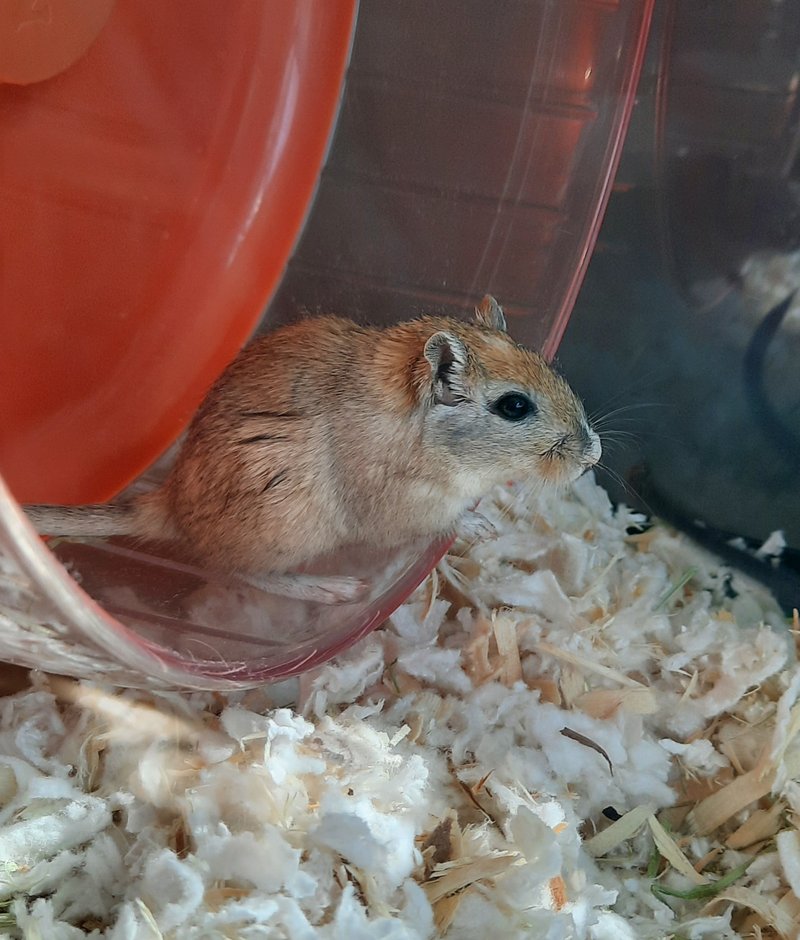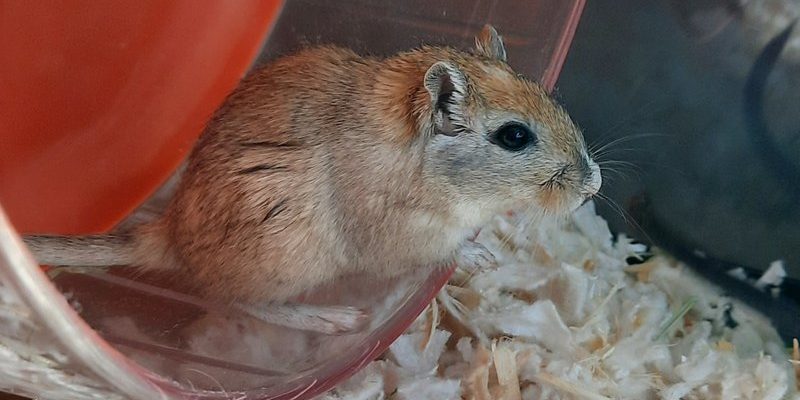
Before you leap into breeding, let’s get a grip on what it actually means to breed dove gerbils. It’s not just about pairing up a male and a female; it’s a process that requires care, knowledge, and a bit of preparation. You might be wondering where to start, what to expect, and how to ensure that both parents and offspring are happy and healthy. So, grab that cup of coffee, and let’s dive into the world of dove gerbil breeding.
Understanding Dove Gerbil Basics
Dove gerbils are a color variant of the Mongolian gerbil, characterized by their beautiful grayish-brown coloration with a hint of cream. Before you even think about breeding, it’s essential to know a bit about their behavior and needs. These little critters are social animals that thrive in pairs or small groups. When considering breeding, make sure both of your gerbils are healthy and bonded.
It’s also important to know that gerbils have a relatively short gestation period of around 24 days. This means that once you decide to breed them, you could be welcoming little ones into your home sooner than you think. However, with this excitement comes responsibility. Understanding their care requirements will lay the groundwork for a successful breeding experience.
Preparing for Breeding
Before diving into the process, preparation is key. You’ll want to create a comfortable and stimulating environment for your gerbils. Think of their habitat like a cozy den where they can feel safe and relaxed. Here are some essentials to consider:
- Cage Size: A larger cage is ideal. Aim for at least 10 gallons for a pair, with plenty of space for nesting materials.
- Nesting Materials: Provide shredded paper or aspen shavings for them to create a nest. They’ll appreciate having a soft and secure place to raise their young.
- Diet: A balanced diet is essential. High-quality pellets, fresh veggies, and occasional treats will keep your gerbils healthy and happy.
Remember, creating a welcoming environment isn’t just about the physical space; it’s also about minimizing stress. Keep the cage in a quiet area away from loud noises or sudden movements that could make your gerbils anxious.
Choosing the Right Pair for Breeding
When it comes to breeding dove gerbils, choosing the right pair is crucial. Ideally, both gerbils should be at least 5–6 months old and in good health. Here are a few tips to help you select the best pair:
- Temperament: Look for gerbils that are calm and social. Aggressive or overly shy individuals might not make the best parents.
- Health Checks: Ensure there are no signs of illness, such as discharge from the eyes or nose or lethargy.
- Genetics: If you’re aiming for specific colors or traits, consider their lineage. Keeping track of genetics can help prevent health issues in the offspring.
You might think it’s as simple as pairing them up and letting nature take its course, but sometimes, a little matchmaking is necessary. Watch how they interact, and ensure they’re compatible before making the leap.
What to Expect During Gestation
Once your gerbils have successfully mated, the next step is to be aware of what happens during the gestation period. The journey of expecting little gerbils can feel like waiting for a surprise party to unfold. Here’s what to keep in mind:
– Nesting Behavior: As the days go by, you’ll likely notice that the female will start to build a nest. This is a sign that she’s preparing for her babies. Make sure she has all the materials she needs to create a cozy spot for her new family.
– Eating Habits: Pregnant gerbils might eat more than usual. It’s essential to provide a high-quality diet to support her increasing nutritional needs. Think of this as making sure the expectant mom gets her cravings satisfied!
– Handling: Limit handling the pregnant female to reduce stress. It’s natural to want to check on her, but too much interaction can be overwhelming. Giving her this space is like letting her have a peaceful pregnancy.
Caring for Newborn Gerbils
When the big day finally arrives, be prepared for a delightful surprise! A litter can range from 3 to 10 pups. They’ll be tiny, blind, and helpless at first, needing the love and care of their mom. Here’s how to support her and the newborns:
– Separation from the Male: After mating, it’s wise to separate the male once the female is about to give birth. This helps prevent further pregnancies and ensures the female can focus on her new litter.
– Ensure Comfort: Keep the cage clean and avoid disturbances. The mother will need time to tend to her pups without unnecessary stress. Think of it like ensuring a quiet environment for a newborn baby.
– Monitoring Health: Keep an eye on the mother and the babies. If you notice any signs of distress—like refusal to nurse or excessive bleeding—contact a vet. Early intervention can make a big difference in the health of both the mother and her little ones.
Finding Homes for Gerbil Pups
As the pups grow, they’ll eventually reach an age where they’re ready to leave the nest and find new homes. This part can be bittersweet, as you’ll have to part with some of those adorable furballs. Here’s how to approach finding homes for them:
– Timing: Usually, pups can be weaned at around 4–5 weeks, but it’s best to let them stay with their mom until they’re at least 6 weeks old. This ensures they learn essential social skills.
– Screening New Owners: Just like choosing the right breeding pair, it’s important to screen potential new owners. Talk to them about their experience with pets and ensure they’re committed to providing a loving home.
– Educational Resources: Providing new owners with care guides or basic knowledge about dove gerbils will set them (and the gerbils) up for success in their new life. Sharing your wisdom can help create strong bonds between the new owners and their furry friends.
Common Challenges in Breeding Dove Gerbils
Breeding dove gerbils isn’t always smooth sailing. Just like any adventure, you might encounter challenges along the way. Being aware of potential problems can help you tackle them head-on:
– Aggression: Sometimes, gerbils can be aggressive, especially if they feel threatened or territorial. It’s essential to monitor their behavior closely and to have a backup plan in case you need to separate them.
– Health Issues: Pregnant gerbils can experience complications such as dystocia (difficulty giving birth) or infections. Recognizing the signs and being ready to consult a vet can save lives.
– Unplanned Pregnancies: If you keep a mixed-gender group, be prepared for the possibility of unplanned litters. It’s essential to know how to segregate and manage them effectively.
Breeding dove gerbils can be a delightful and rewarding experience if done right. With the right knowledge and preparation, you can create a loving environment for your gerbils to thrive and enjoy the joys of raising a new generation.
In the end, whether you’re welcoming a new litter into the world or finding good homes for the pups, the love and care you invest in breeding dove gerbils will create lasting memories. So, roll up those sleeves, get comfy, and embark on this rewarding journey of breeding dove gerbils. Enjoy the process; it’ll bring a whole new level of joy to your life!

